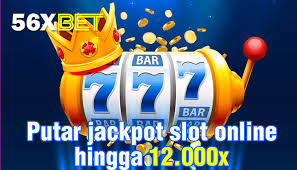The Joker card has transcended its original purpose in playing card games to become a widely recognized symbol in various forms of entertainment and culture. Initially introduced in the United States during the 19th century, the Joker has evolved significantly over time, playing crucial roles in games, storytelling, and even paito angka. This article explores the history, significance, and various applications of the Joker card in games and beyond.
History of the Joker Card
- Origins in the United States:
The Joker card was created in the United States around the 1860s as a wild card for the game of Euchre, a popular card game at the time. It was introduced to provide players with a flexible card that could substitute for any other card, thus enhancing gameplay. - Design and Variations:
The design of the Joker card has varied significantly, often depicting a jester or clown figure. These designs have evolved to reflect different cultural interpretations, and many modern decks feature colorful and artistic representations of the Joker. The card often includes symbols like bells, stars, or a whimsical hat, emphasizing its playful nature. - Expansion to Other Games:
The Joker’s popularity quickly spread beyond Euchre, leading to its incorporation into various card games, including Poker, Rummy, and Canasta. In many of these games, the Joker serves as a wild card, adding an element of unpredictability and excitement.
The Joker in Card Games
- Wild Card:
In games like Poker, the Joker can be used as a wild card, allowing players to complete their hands by substituting it for any card. This feature can significantly alter the dynamics of the game and enhance the strategies employed by players. - Game Variants:
Some games have specific rules regarding the use of Jokers. For instance, in certain variations of Rummy, a Joker can serve as a substitute for any missing card, making it a valuable asset during gameplay. - Scoring and Bonuses:
In games like Canasta, Jokers often have specific point values or roles that can influence scoring. Players may aim to collect Jokers for their potential to boost their overall scores and increase their chances of winning.
Cultural Significance of the Joker Card
- Symbol of Chaos and Playfulness:
The Joker is often seen as a symbol of chaos, unpredictability, and playfulness. This representation is reflected in literature, movies, and other forms of media, where the Joker embodies a sense of mischief and spontaneity. - Psychological Interpretation:
In psychology, the Joker can represent the concept of the “trickster” archetype, characterized by subversive behavior and the ability to challenge norms and conventions. This archetype is prevalent in folklore and mythology, where trickster figures often teach important lessons through their antics. - Pop Culture:
The Joker has made a significant impact on popular culture, most notably through the character of the Joker in Batman comics and movies. This portrayal has solidified the Joker’s status as a complex character, representing chaos, duality, and the blurred lines between good and evil. The character’s popularity has led to various adaptations and interpretations in films, television shows, and video games.
Tips for Playing Games with Joker Cards
- Understand the Rules:
Before playing any card game that includes Jokers, familiarize yourself with the specific rules regarding their use. Understanding how Jokers function in each game can enhance your strategic gameplay. - Utilize the Joker Wisely:
If playing with a wild card, consider when to use the Joker for maximum effect. Holding onto a Joker until it can create a winning hand may provide a strategic advantage. - Adapt Your Strategy:
The presence of Jokers can change the dynamics of gameplay. Be prepared to adapt your strategy based on how your opponents use their Jokers and what cards they are likely to hold.
Conclusion
The Joker card is more than just a playing card; it represents a rich history and a plethora of cultural meanings. From its origins in the game of Euchre to its role as a wild card in various games, the Joker has become a symbol of unpredictability and fun. Its influence extends into popular culture, psychology, and storytelling, making it an enduring and iconic figure. Whether you’re playing a card game or exploring its deeper meanings, the Joker card continues to captivate and intrigue people around the world.
